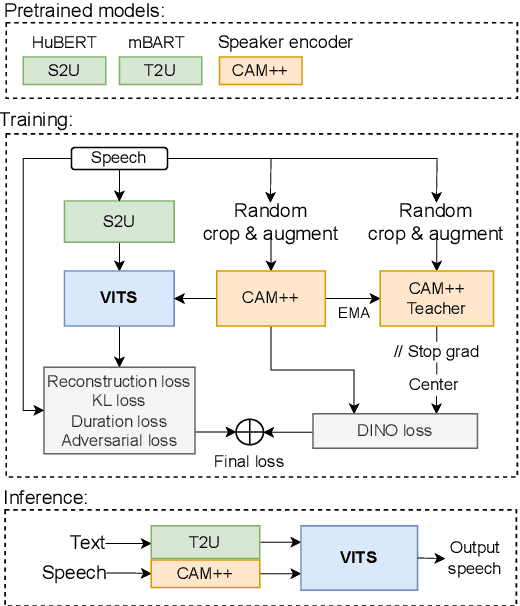Nikolai Ermolenko
DINO-VITS: Data-Efficient Noise-Robust Zero-Shot Voice Cloning via Multi-Tasking with Self-Supervised Speaker Verification Loss
Nov 17, 2023



Abstract:Recent progress in self-supervised representation learning has opened up new opportunities for training from unlabeled data and has been a growing trend in voice conversion. However, unsupervised training of voice cloning seems to remain a challenging task. In this paper we propose a semi-supervised zero-shot voice cloning approach that works by adapting a HuBERT-based voice conversion system to the voice cloning task and shows the robustness of such a system to noises both in training data (we add noises resulting in up to 0db signal-to-noise-ratio to 35% of training data with no significant degradation of evaluation metrics) and in the target speaker reference audio at inference. Moreover, such a method does not require any type of denoising or noise-labeling of training data. Finally, we introduce a novel multi-tasking approach by incorporating self-supervised DINO loss into joint training of a CAM++ based speaker verification system and a unit-based VITS cloning system. We show that it significantly improves the quality of generated audio over baselines, especially for noisy target speaker references.
 Add to Chrome
Add to Chrome Add to Firefox
Add to Firefox Add to Edge
Add to Edge